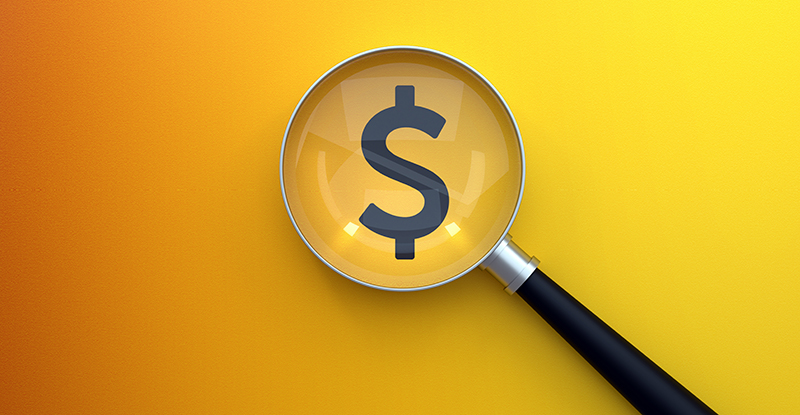
Listen to our podcast episode where CPABC’s financial literacy program administrator Jessica Chan interviews Jeff Brown, a CPA in Ontario and the Head of Small Business Banking and Wealth Management at HSBC Canada to talk about how you might set yourself up for financial success using RRSPs, TFSAs, GICs, mutual funds, and EFTs. Part of our Coffee Chats with CPABC podcast series.
For many Canadians, terms such as GICs, mutual funds, and ETFs can be daunting. What do they even mean, and how can you invest in them? This article will break down three common types of investments Canadians should know about and why diversifying your portfolio is important. All three of these products can be held within registered (RRSPs and TFSAs) or non-registered accounts. In my previous article, I provided some basic, essential information on RRSPs and TFSAs.
The three common types of investments
- Guaranteed Investment Certificate (GIC)
The simplest, safest investment you can make is a guaranteed investment certificate, a GIC, a product which you generally hold for a pre-set period. This type of investment is considered safe because your principal, which is the money you initially invest, is guaranteed. Canadian financial institutions usually have insurance coverage by the federal government, so you can be certain that your principal is protected up to limits. Therefore, if you're looking for absolute certainty and security, a GIC would be your best choice.
However, GICs typically have low investment returns and that’s particularly true in today’s climate of record low interest rates. When you factor that in with inflation, you may even end up with a negative return, so the cost of safety can be expensive. If you are willing to take on additional risk to earn more, the next option you can look at are mutual funds.
- Mutual Funds
There are different types of mutual funds, but most mutual funds hold a basket of securities. If you are looking for safety, your basket of securities could be government bonds or money market instruments, such as GICs, which trade with a high level of guarantee and security. But you can also move up the risk continuum and get into options like equities in different sectors and markets. Mutual funds give you flexibility in your investments and a diversity of product offerings.
Generally, mutual funds are actively managed by an investment manager who makes decisions to improve the performance of your investment. These decisions are based on the market and the opportunities in certain sectors that might offer greater returns. However, mutual funds can also hold passive investments, which are essentially mutual funds that track something, such as an index or a basket of securities. The management of mutual funds comes with greater fees than most other investments, which are reflective of the level of active management.
- Exchange-traded Funds
Exchange-traded funds (ETFs) are the fastest-growing segment of investments. They typically come with lower fees and follow a specific basket of securities that are traded on an exchange such as the Toronto Stock Exchange (TSX). As a result, there aren’t many investment decisions you need to make.
For example, as an investor, you can choose to say, "I’m going to invest in an ETF that holds a basket of the largest companies on the TSX." This results in what is known as a low tracking error, and it also results in lower overall fees. However, one challenge for ETFs is they don’t have active decision-making option where an investment manager can adjust investments based on market opportunities.
ETFs also offer strong liquidity and allow for intraday trading. That allows you to sell or buy ETF units during the day at current market prices, which gives greater flexibility compared to mutual funds which are priced once a day to determine the value of your investment and can be harder to sell.
How taxation can affect your investment income
Tax implications should be factored in when deciding on the type of investment you want to make. For GICs, there is safety with guaranteed interest, but when it matures, any income must be reported, which could affect your tax rate. With mutual funds, you have to pay capital gains on what you’ve earned, which often will yield a lower tax amount compared to GICs. ETFs don't typically pay out distributions, so they generally have a slightly better tax advantage compared to the other two. In non-registered accounts, carefully consider your own tax situation to help determine what to invest in and where to put those investments. For investments that may have the biggest tax impact, consider doing them in your TFSA.
Why diversification is beneficial
Another thing to consider is diversifying your portfolio within your risk level and it is something you should discuss with a financial advisor. The volatility in 2020 is a good example of how important diversification can be. In March 2020, equities were down significantly but by the end of the year they were up, a significant rebound from March lows. If you were diversified through this difficult year and didn’t make any changes to your investment, your investments probably rebounded quite well on its own.
You also want to consider macroeconomic factors, such as interest rates, which have an inverse effect on bonds. Many do not understand that if rates are going up, the value of their bonds actually go down, and vice versa.
Different factors in the markets can be affected by changing conditions and diversification will reduce the impact. As a result, you can survive drastic situations, such as the COVID-19 pandemic, because your investments are protected in multiple ways. Sometimes when something is going down, something else is going up. That is the power of diversification.
Tax rules can be complex. This article is not intended as tax advice, and you should not make tax decisions based solely on the information presented. You should seek the advice of a chartered professional accountant before implementing a tax plan or taking a tax filing position. The views expressed by Jeff Brown are his and do not represent those of HSBC Canada.
Jeff Brown is the head of Small Business, Banking and Wealth Management at HSBC Canada and is a CPA in Ontario. For information about CPABC’ financial literacy program, visit CPABC's FinLit site.



